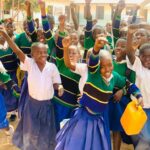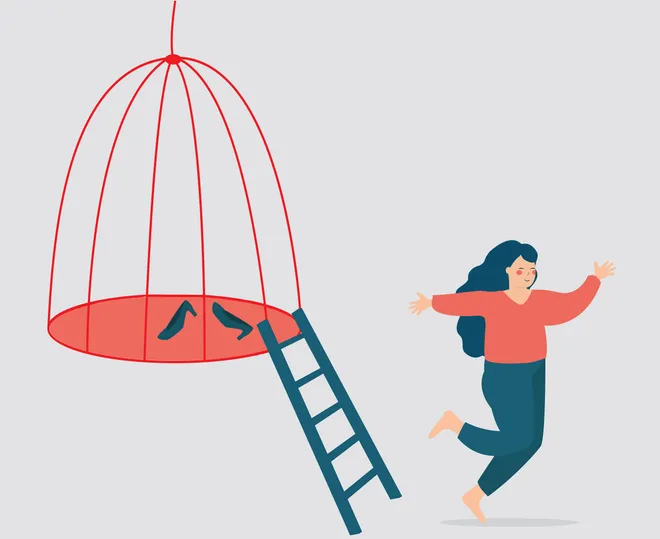World Neighbors Announces New Grant in Honor of Neil Seldman to Enhance Climate Resilience, Zero Waste and Organic Agriculture Projects
February 1, 2023
Africa Climate Summit – Start Young with School Environmental Clubs
August 30, 2023Inspiring story shows how gender-based violence can be overcome

One woman’s inspiring efforts and experience make clear you can recover from violence
It is well understood that war and other armed conflict hinders economic development. Private violence, especially gender-based violence against women and girls, traps families and entire communities in poverty.
I was starkly reminded of this on a recent trip to Kenya. I served on the board of World Neighbors, an international development organization based in Oklahoma City. Along with the group’s CEO, a small group of us traveled to see the work communities are doing to lift themselves from poverty.
On the trip to one village, I was privileged to meet Linet Anyango Opiyo. Linet’s experiences demonstrate how violence against women and girls and gender discrimination in the education system, which is biased against girls, not only harms and warps individuals but is a major hindrance to economic development. Happily, Linet’s experiences also show how patient, community-based work can overcome domestic violence, limit involuntary early marriage and prevent other egregious forms of inequality.
Linet was born in 1982 in the village of Katuk in Kenya’s Osiri region. She passed primary school exams and proceeded to secondary school. Linet’s schooling stopped when she became pregnant at age 15. She was suspended from school, as Kenya has a law that does not allow pregnant girls in school. Nor can they return after giving birth to their child. The law is, however, rather lenient with boys or men who make young girls pregnant. So, Linet had to bear the consequences alone while the father of her child continued in school.
Having dropped out of school, Linet had few options. She moved from her village and married a 36-year-old man whose source of income was ferrying people and goods on a leased motorcycle. Linet gave birth to four more children. Her husband was physically, psychologically and emotionally abusive. This abuse, which Linet endured for 15 years, included sexual and other assault when he was intoxicated. In one assault, Linet was rendered unconscious and had to be taken to the hospital.
It was then that Linet’s story took a turn for the better.
Linet’s brother is a volunteer community facilitator for World Neighbors. In that role, he leads health — including reproductive health — nutrition and other trainings; helps neighbors obtain HIV/AIDS testing and medications; interacts with government officials to access resources; and does other work to help his community. He helped with legal and other actions so Linet could leave her marriage. She and her children eventually moved back to her village to live with her parents.
In a stable situation free of violence and threats, Linet returned to school. She passed her secondary school examinations and then enrolled in college, where she trained as a teacher in early childhood development.
Linet is currently employed by the Nairobi city county government as a teacher. As important to Linet and her children — as well as to Kenya’s long-term development — her children are in school. This includes her first born, who is enrolled in university.
As I was heading from Katuk (Linet’s village) to Nairobi, I passed the Nairobi Women’s Hospital. At the entrance there’s an important sign: “A Gender Based Violence Recovery Center.” That single line captures the need for continued efforts to overcome not just war, but every kind of violence that seeks to harm people and limit their opportunities to learn, work, contribute and make better lives for future generations. As Linet’s inspiring efforts and experience make clear, it can be done.

Dr. Susan Chambers served 18 years on the World Neighbors Board of Directors. Chambers is a founder and owner of Lakeside Doctors and Lakeside Women’s Hospital in Oklahoma City.
This article originally appeared on The Oklahoman on July 28, 2023.

